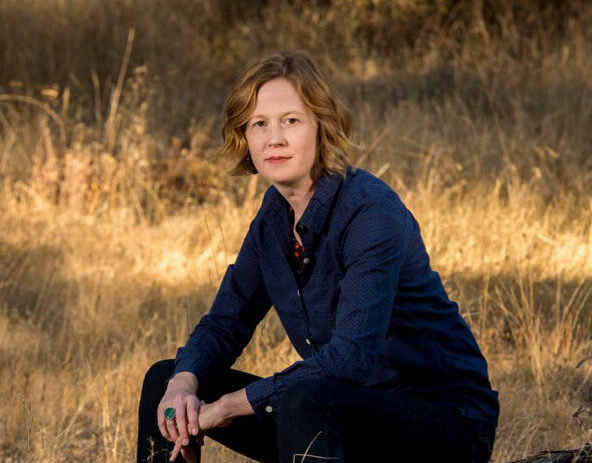First Wednesdays at the Aquarium of the Pacific: Emma Marris
Provocative environmental writer Emma Marris doesn’t ask easy questions and she doesn’t expect simple answers — what she’s after is a good conversation.
And that’s exactly what she’s offering as part of September’s ‘First Wednesdays’ lecture series at the Aquarium of the Pacific, and in her recently published book “Wild Souls: Freedom and Flourishing in the Non-Human World,” as Marris challenges us to change the way we think about nature and our place within it.
As animal life and human life become ever more intertwined, especially with humankind’s impact on global warming, Marris argues that there might not really be “wild” animals anymore. The Oregon resident says we need to ask ourselves what we owe to the creatures forced to adapt to life so thoroughly changed by us, even if there aren’t any perfect solutions.
“We have really changed the world, and all of the animals that live in it now are basically living in our world, and I think this gives us new responsibilities,” Marris says. “In this world we’ve created, it’s time for us to take those responsibilities to other species seriously.”
Providing examples of species facing profound challenges, Marris tells the affecting and inspiring stories of Peruvian monkeys, Australian bilbies, rare Hawai’ian birds and majestic Oregon wolves in her search for sustainability and justice for non-human life.
Among the animals she’s concerned about, Marris questions the purpose of keeping land and marine life in zoos and aquariums. “Is our pleasure in seeing those creatures up close worth the price of their captivity,” she asks, contending that the practice of breeding animals for display needs to end. She also calls for more focus and financial backing for zoos and aquariums to transition into wildlife sanctuaries and botanical gardens.

“There’s no unambiguous evidence that zoos are making visitors care more about conservation or take any action to support it,” she recently wrote in the New York Times. “After all, more than 700 million people visit zoos and aquariums worldwide every year, and biodiversity is still in decline…
“A fine day out with the family might itself be justification enough for the existence of zoos if the zoo animals are all happy to be there. Alas, there’s plenty of heartbreaking evidence that many are not.”
Those who work in the zoo and aquarium world say this does not paint the full picture. After her talk, Marris will participate in a discussion led by Aquarium of the Pacific President and CEO Dr. Peter Kareiva that will further explore the role zoos and aquariums serve in connecting people with nature. The Aquarium hopes this conversation will allow both sides of the issue to exchange views and perhaps evolve their beliefs.
Dr. Kareiva calls Marris one of today’s most original and articulate environmental thinkers. Inviting her to visit the aquarium for the first time, he says he wants to nurture conversations about nature at the First Wednesdays monthly event series, which include a cocktail hour and reception as well as a variety of thought-provoking lectures, demonstrations and panel discussions.
“It’s so important that people who may have little in common or conflicting ideas have quality conversations, and the Aquarium of the Pacific can be a forum for sparking great conversations, ” he says, noting that First Wednesdays in September promises to be just that.
“Marris asks not what is, but what should be, when it comes to our relationship with animals,” he says. “She asks us to ask ourselves what ethics should govern our relationship with animals — pets, livestock, aquaria and zoo animals, non-native species, native species and novel hybrid organisms… I hope you’ll be part of that conversation.”
The free presentation — capped off with a cocktail hour and book signing — will take place in-person from 7-9 p.m. Wednesday, Sept. 1. Reservations are required.

